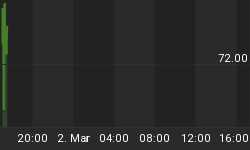Part II
[of a II part article]
Why Supply is Not Rising with Higher Prices?
On the supply side, certain opaque realities are often overlooked and have to be faced clearly. Non-OPEC oil producers are unable to push up oil production as fast as incremental demand is expanding. Old oil fields are declining while new ones are not coming on stream fast enough. This situation will not change in the next few years, unless new oil fields are found.
Can O.P.E.C. fill the gap? It has a share of global oil supply of 45%, at the moment. While it is saying that there is plenty of oil around right now its underlying attitude to market prices has changed dramatically to the detriment of lower prices.
When seen through their eyes, oil is in good supply if one takes out of the formula speculators/investors positions in oil that they have no intention of consuming. This could be in the 35% of oil supply in total. So why should O.P.E.C. support such speculation? Shouldn't the authorities takes these out of the equation so oil can be used properly?
O.P.E.C. has not vigorously pursued replacing used oilfields because of the risk and expense involved [what if prices went so low that their investment returns did not cover these extra costs?] Little exploration was undertaken. In Iraq with 40% of O.P.E.C.'s reserves still undeveloped, many expected the U.S. to accelerate oil production there so that the U.S. would have a firm grip of global oil supply and could ensure low oil prices would persist into the future. So why did this not happen and is not even happening now? We know that answer, as reports from Iraq make patently clear.
So supply is clearly not keeping pace with global demand, as reflected in a steadily shrinking buffer inventory of crude and refined product. Weekly rises in inventories in the States are a short-term changing part of the picture. What has happened to change the oil market at its fundamental level is the change in attitude of O.P.E.C. In the past O.P.E.C. accommodated its customers on the price front ensuring supplies supported lower prices, believing demand would drop if prices rose too high.
Then the Middle East started to develop itself and the need to increase its wealth on the back of this wasting asset came to the fore in their pricing and supply equations. They also realized that the oil they had was just not enough to go around and was wasting away as supplies were sucked out of the ground. Future generations had to be taken into account, so getting as much money for the oil as possible became the target, as it now is with non-O.P.E.C. members too. Surely this is market-oriented capitalism at it best? And the proof of this pudding will be in its drinking, for we are moving to a place where not only is the entire world economy being threatened by present and future insufficient supplies of oil, there is no way out of the vice-like squeeze of oil prices! So the underlying attitude of oil producers going forward is one that will act to maximize income from oil, irrespective of the effects on the global economy.
At $20/b oil producers received $600bn in annual revenue. At $120/b this is $3.6 trillion. Oh, there's much more to go still because oil revenues as a share of global GDP is only at 65% of the 1980's level, still. That's why $200 a barrel is foreseeable! And don't think market forces are sufficient to drop demand and pull prices down with it. Oil fuels the global engines and nothing else will.
In such an environment the value of paper currencies will spiral down at the pace of the oil price rises over time, leading investors to hold gold and silver, which will rise in value as the value of currencies fall.
The 'Ripple Effect' and Consequent Crises
But what is the collateral damage we will see because of high oil prices?
 To get the entire report please subscribe to: - www.GoldForecaster.com
To get the entire report please subscribe to: - www.GoldForecaster.com
[Are you structured to be able to avoid the pernicious effects of coming Capital & Exchange Controls? If not please contact us through gold-authenticmoney@iafrica.com]
"The oil price crisis is far more than just an oil crisis, it is a crisis that is and will trigger a series or more serious crises."















